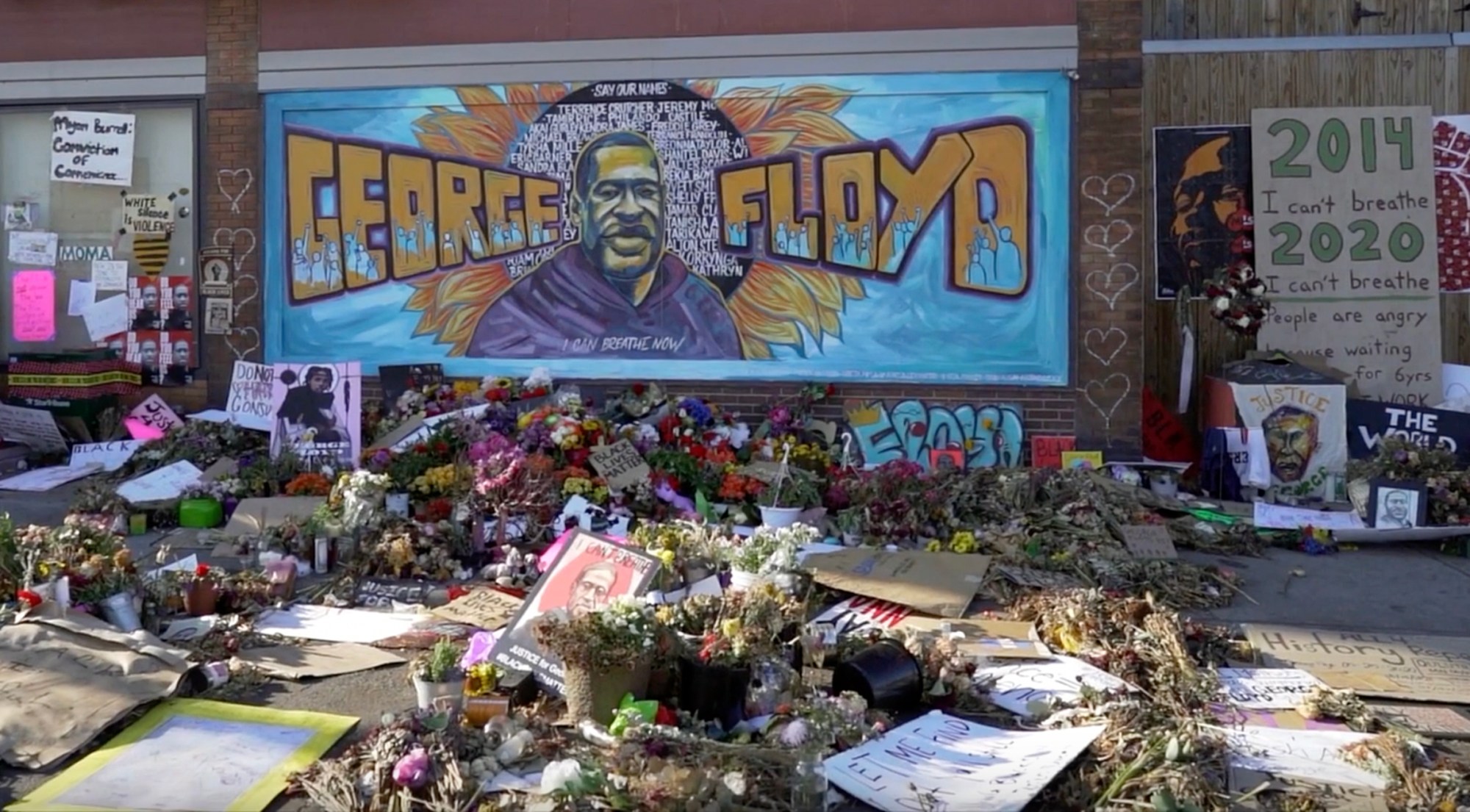
- Industry
George Floyd – A Tragic Anniversary and the Art It Inspired
Two years ago today, it took eight minutes and 46 seconds for a tragedy to unfold that will forever be imprinted in the history of America. It created a worldwide uproar and gave birth to the biggest anti-racism movement since the civil rights days of the 1960s. Now, a slew of projects are in the works that will make certain that we never forget.
It was on May 25 2020, in Minneapolis, Minnesota, that cops who do not deserve to have their names in print caused the slow and horrifying death of a man they could and should have peacefully apprehended, George Floyd. Thanks to the invention of camera phones, the murder was recorded and leaked to the media. In a matter of hours, crowds of outraged people took to the streets, and the Black Lives Matter movement – which had begun in 2013 after the acquittal of the policeman who had shot to death Black teen Trayvon Martin – took further flight, spreading from Minneapolis across the nation and in subsequent days and weeks across the planet.
George Floyd’s then 6-year-old daughter Gianna said at his funeral: “Daddy changed the world”. And he did. Police officer-induced violence was and is by no means a rarity in the US. It is part of a culture – although we can only use this word loosely – that has its roots in the dark history of slavery that made the white colonists rich and powerful at the expense of people of color. The repercussions are felt to this day, and nowhere more so than in the way the people who are supposed to protect citizens abuse power. The number of African Americans killed by police between 2015 and 2022 is two-and-a-half times higher than that of white Americans.
The first film about George Floyd was the documentary short Say His Name: Five Days for George Floyd. In 21 minutes, Director Cy Dodson, who lives at the epicenter of where the tragedy unfolded, captured the unrest in his neighborhood in the five days between the murder of Floyd and the charges filed against the main police officer as well as the eruption of protests against centuries of racial oppression. The documentary was released in 2021.
That same year, Travon Free directed Two Distant Strangers, which won him the Academy Award for Best Live Action Short Film. Free described his film as being about “a Black man trying to get home to his dog.” But, as the filmmaker told Ellen DeGeneres on her show, “it sounds simple, but you can complicate that in many ways when you’re telling a story about America. He runs into a cop and the cop ends up killing him and he wakes up and the day starts all over again. He finds himself going through this loop, trying to figure out how to break the cycle of running into this cop and trying to change his behavior and do things different, and having the same memories of it.” A sort of Groundhog Day that is anything but comedic. In fact, that is exactly how the first-time director described it: “In doing that and repeating that cycle every day and internalizing the feelings you feel when you hear a new name — Ahmaud Arbery, Breonna Taylor, George Floyd. As a Black person, you go through this cycle of emotions to process these things, and I found myself going through my cycle for these three different people and they were overlapping, and it just felt like living the worst version of Groundhog Day.”
ABC News aired a doc on last year’s anniversary called After Floyd: The Year That Shook the World, and now there is a new documentary. Sky News is behind 8 Minutes and 46 Seconds: The Killing of George Floyd that poses the question of where we go from there and what impact the killing and its reaction will have for the future. By taking a close look at the moment that defined the BLM movement, it explores white supremacy and the culpability of politicians who have exploited their power and encouraged racism in America. Co-directors Gilberte Phanor and Toby Sculthorp delve into the responsibility that every one of us has to affect change and the urgency of looking at different ways for law enforcement officers to act in communities of color. The directors interviewed DEI specialists and activists and hired Idris Elba as a narrator.

